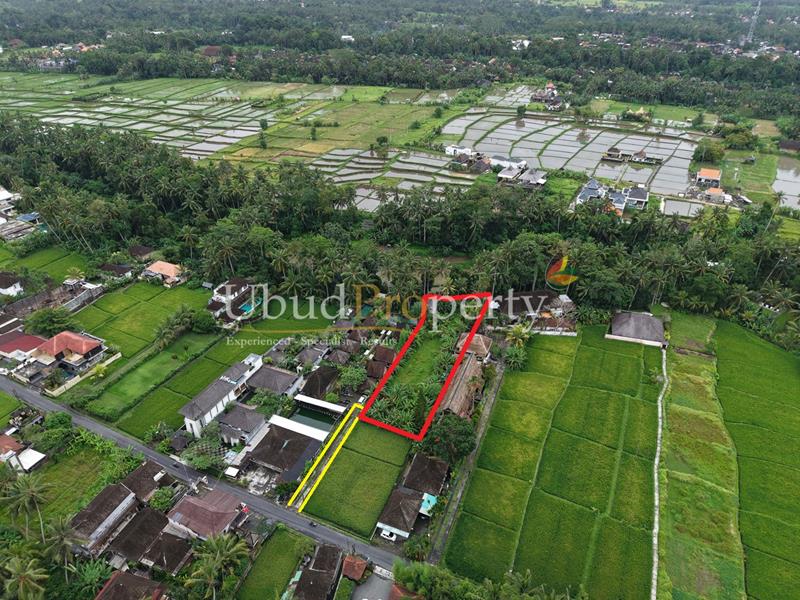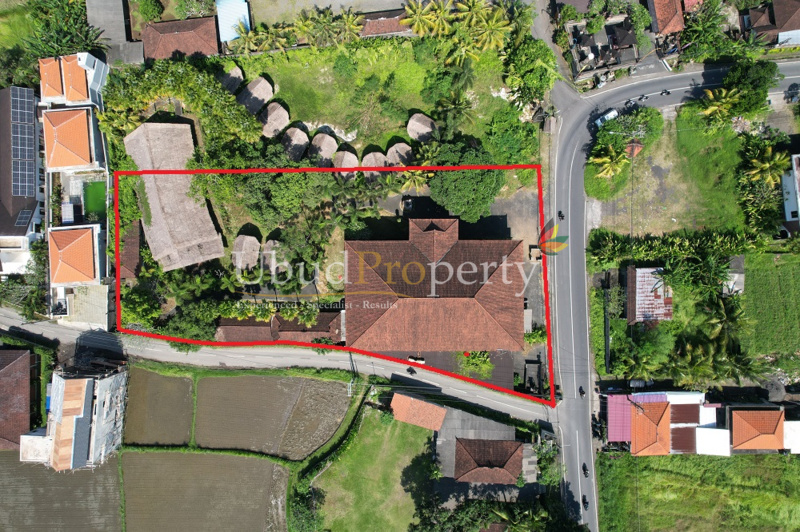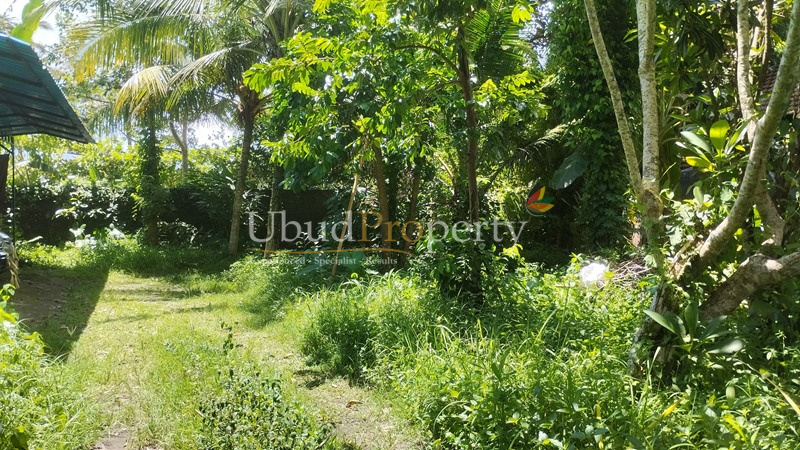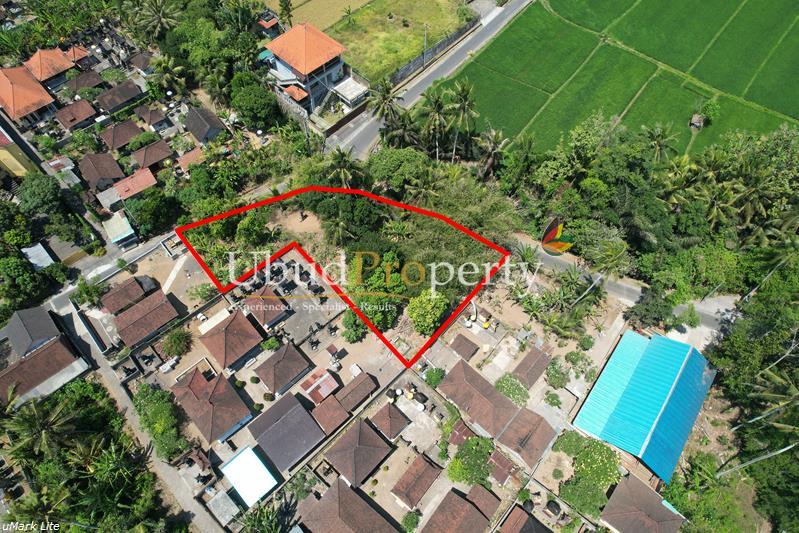The nominee agreement crisis a follow up
22 Juni 2015
- The dust has settled, - maybe for good?
A follow up by Ramon / UbudProperty
This article is meant as a follow up on the heated discussion around the announcement that was made earlier this year by the Indonesian Government relating to properties purchased by Indonesians for foreigners, using Nominee agreements.
(Should this issue be new to you, please read more in our newsletter of 19 March 2015)
Many Expats in Bali and Lombok where unsettled and frightened by the prospect to be possibly subject to legal proceedings and/or maybe even losing their investment following the Minister’s statement. I would like to say: The dust has settled,- maybe for good?
Because since the initial statement, legal experts in Indonesia and overseas, as well as the Indonesian Government, had time to think –and we haven’t heard anything from them since. It is indeed fair to assume that the Ministry of Agraria is in detail considering the implications of the proposed action, because -
- They might have realized that the private investor mood would be seriously hit. There are more than just a handful of foreigners operating substantial businesses here, almost all of them established and living on private property too.
- Next, how to go about finding out which properties, registered under Indonesian names would in fact be related to foreigner’s interest? Would Notaries be summoned to disclose any Nominee agreement ever made? This seems highly improbable and in any case would lead to an administrative nightmare and a legal disaster, because the net would have big holes due to the nature of things being frequently (mis)-organized.
- Furthermore we heard that the Indonesian law does not provide a legal base to criminalize the involved parties. (read more in the following comments).
- Finally, the Minister was softening up his strong position by saying that everyone has a chance to rectify their legal situation, before any Government action will be taken. There was talk of a grace period of 18 month, leading to mid 2016.
I remember that in 2009 there was a similar announcement made by the Indonesian Land Department, albeit more mild in the wording, but meaning the same: Foreigners are not allowed to own or control freehold property in Indonesia, and have to stop at once trying to circumvent the law. - Then for the following 5 years nothing was heard again.
However, this time around it could be different. The new ministers were selected by President Jokowi for their active and successful roles in past professions or organizations. Also the stronger nationalist factions may insist on pushing the move ahead, which then may well grind to a halt, due to political differences.
In order to find out what our clients and in general foreign investors have to expect, I made in March an appointment for April with the office of the Secretary of the Minister of Agraria, Ferry Mursyidian Baldan, to clarify things there in Jakarta.
The idea was to understand what is in the Governmental pipeline and at the same time to ask about when to receive clarification on several issues, e.g. the Governments intentions after 70 years of Hak Pakai ownership have passed (at present the law is silent on this) and to raise awareness of the challenges to the Government should there be a ’go ahead’ in following up on nominee agreements in order to restore lands back to the state.
On seconds thoughts I later cancelled the visit.
The reason: If the dust may have settled for good, why risk waking the dogs?
Too many foreigners interest are at stake. No dust cloud.
My promise to you: As soon as we hear anyone (Government, Notaries, Chamber of Solicitors, etc.) talking about any new related development, you’ll be the first to know by email.
Following I picked up some interesting opinions on the issue. Some comments have been cut short, but again, this is not about offering new facts, this is about keeping us all on our toes and remind you to look out for news (if any).
Until we meet again – wishing you the good life and your investment to do well.
Ramon Genz
Sr. Advisor / UbudProperty
...regarding the residency (KITAS/KITAP) requirement, this does not stipulate that the foreigner must stay in Indonesia all the time to maintain legal residency status. As one does, he can spend time in his home country, or travel, and can even rent the property out commercially while away (with business licenses/permits to do so).
The Hak Pakai title is meaningful particularly to people who wish to have a second home, retire, or bring high-level employees to work in Indonesia as expats (like banks and various other industries do). The investment in the property is not diminished during the time the foreigner resides there. It appreciates just as much as Hak Milik properties around it. For example, if a retired professional couple from Australia would like to retire in Indonesia, they might sell their home in Australia, and invest the proceeds in a home here. They may anticipate that when they become unable to live fully independently, they intend to sell the home, and use the proceeds to buy into a retirement community or return to Australia and live in an apartment with assistance from family or others. With HP they will be able to do so, as their investment in the Indonesian property is secure, and appreciates along with the market. They will be able to sell the Indonesian home, and recover their investment (plus its appreciated value), in order to fund their next home.
The example above is somewhat similar to the situation of a foreigner who has the opportunity to work here, and intends to do so for a certain number of years, and then return to their home country. If their property in Indonesia appreciates at a greater rate than property in their home country, when they sell it and return, they will be able to buy an even better house than they had before. :)
G.F. Finlayson Lawyers, Bali Post 26.3.2015
. . . the (minister’s) comments leave a number of lawyers, especially international lawyers, scratching their heads and wondering what is at play. What part of the constitution is this guy thinking of? What principle of International law could possibly be relied upon to prevent foreigners owning land in a country if a country’s domestic law permitted it?
. . . secondly, clients need to have explained to them by their legal advisors the difference between a right of land ownership against the world and a right of contract against an Indonesian landholder. They are two very different things, and the good minister is speaking about the first and not the second.
There are very few foreigners who have attempted to register hak milik property in their own name in Indonesia. Anyone who has done that would have been very poorly advised. Most arrangements involve foreign funding of an Indonesian ownership in return for contractual agreements about use and proceeds of sale by a foreigner. There is inherently no legal prohibition on that, but foreign borrowing rules may be pedantically applied. The contractual rights are a lesser form of right than a property right, and do not amount to ownership of the land. Despite a weakness compared with a property right, there is nothing necessarily illegal about it.
· Richard O’Brien says:
I think with an issue such as this, opinions given should be factually correct. eg, according to Sriro, which is regarded as the acceptable translation of Indonesian Law into English, Hak Pakai is available to foreigners who do dot permanently reside in Indonesia (Sriro 2011, p653, Subhead ’Presence in Indonesia’, para 2.)
It is also worth noting that all land title transfers in Indonesia must be supervised and approved by a Notaris. No other branch of the Law can perform this function. Unlike other countries, Notaries here are all qualified lawyers. They also work for the government and are not in private practice. They charge a standard fee and have nothing to gain by authorising illegal transfers. The ones I have spoken to believe that nominee ownership is technically perfectly legal. As government functionaries, it is also hard to believe that they could be prosecuted by the government for wrongful title transfer. Title transfer is entirely their responsibility. It’s not feasible that the government would prosecute itself.
The problem with Hak Pakai is that only one title can be transferred per person, whereas the Nominee system does not have that restriction. However, a PMA company can allow multiple ownerships and I hope in the fallout from this scrutiny, that PMA companiies will become easier and cheaper to set up. Better still, that the government accepts the Nominee System as perfectly lawful.
Nominees are a a way around the constitutional problem that foreigners cannot own land here. It is an emotional issue. My country does not have this problem. Anybody can by land there. But all countries that do deny foreign ownership have ways around it for sound economic reasons. Nominees are just one way (as in Thailand, I believe) Hak Pakai and Hak Guna Bangunan are 2 others.
Stanley Anthony
How to prove foreign ownership? The BPN says that the survey of ownership will be done in such a way as to avoid creating an uproar. "[They] are inventorying, not conducting raids. So there is no need for anyone worrying or being frightened," said Baldan. The oversimplification of this process by the minister begs the question among inevitably worried foreigners as to how—if at all—the government can prove the land is indeed owned illegally?
Jesse Wagstaff (CC)
Daniel Sunyoto, vice president of the Association of Real Estate Brokers Indonesia (AREBI) in East Java thinks that finding proof would be both difficult and impractical for the BPN. He explains that from a government perspective, however proving illegal ownership can indeed be done. "The tax report from the sale of the land, especially if the nominee is a low-income employee, whose salary wouldn’t be able to make the purchase," says Sunyoto, highlighting one possible method.
Sunyoto added that the BPN also has the option of going through the original notary in order to see if there is a Power of Attorney agreement linked to the purchase of the land that binds a nominee to a foreigner. It is worth noting, however, that the notary is not obligated to report any such agreement at the time it is drafted.
As for the BPN’s claims that land could be seized by the state, Sunyoto thinks that it would be hard for the government to have enough legal ground to seize the land in most cases. He adds that ownership would most often default back to the nominee. For this reason, Sunyoto recommends purchasing property under your own name using Hak Pakai in order to eliminate the need for a nominee.
Above opinions were collected from various forums or meetings and do not necessarily reflect the opinions and evaluation of UbudProperty.
FEATURE LISTINGS
U.660

- 1,295 Sqm
Tanah 12.95 Are di Dekat Pusat Ubud – Pemandangan Sawah, Hutan, & Sungai More Detail
IDR 9.712.500.000S.195

- 2,490 Sqm
This land with building really suits a café or luxurious villa in this strategic area More Detail
IDR 9.586.500.000
